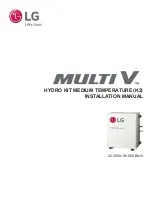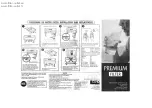
Warranty and the Use of Renewable and Other Paraffinic Diesel Fuels
PACCAR Inc. approves the use of paraffinic diesel at any blend level or as a stand-alone fuel, providing that the following
conditions are met:
•
The paraffinic diesel in the fuel meets EN 15940 specifications, and
•
The finished fuel meets the properties of ASTM Standard D975
The use of approved paraffinic diesel fuel does not affect the PACCAR engine warranty, or its maintenance intervals.
Failures caused by the use of fuels that are not approved, are of unacceptable quality, or do not meet specified industry
standards are not considered as defects of parts or workmanship by PACCAR and therefore will not be covered by the
PACCAR engine warranty. Specifically, raw or unprocessed vegetable oils differ heavily from paraffinic diesel and are not
approved.
PACCAR recommends that customers intending to use paraffinic diesel become familiar with the properties of these fuels.
Please reference the fuel supplier’s technical information and request a copy of the certificate of analysis if it is unclear
whether the fuel meets specifications. In particular, operators should be aware that paraffinic fuels are more prone to cold
flow (gelling) and filter plugging issues if not formulated to meet climate-dependent requirements for the region. Operators
should also be aware that paraffinic diesel energy content (by volume) is lower than that of petroleum diesel, which can
reduce fuel economy by up to four percent as a stand-alone fuel.
Warranty and the Use of Biodiesel Fuel
PACCAR Inc. approves the use of biodiesel fuel blends up to 20 percent by volume in diesel fuel providing that the
following conditions are met:
•
The biodiesel used in the blend meets ASTM Standard D6751 or EN 14214 specifications.
•
The biodiesel used in the blend is sourced from a BQ-9000 Accredited Producer.
•
The finished blend meets the fuel properties of the ASTM Standard D975 (up to B5 blend) or D7467 (B6 to B20
blend).
•
If using B6-B20 the engine oil and oil filter are changed per the modified schedule. See the Preventative
Maintenance Schedule.
•
If using B6-B20 the fuel filter is changed every 25,000 miles (40,000 km).
The use of approved biodiesel fuel does not affect the PACCAR engine warranty. Failures caused by the use of non-
approved biodiesel fuels or other fuel additives that are of unacceptable quality or do not meet specified industry
standards are not considered as defects of parts or workmanship by PACCAR and therefore will not be covered by the
PACCAR engine warranty.
PACCAR recommends that customers intending to use biodiesel blends become familiar with the additional handling
considerations of these fuels such as aging, metal compatibility and tendency to absorb water. Please reference the fuel
supplier’s technical information or industry guidelines such as the American Trucking Association Truck Maintenance
Council document RP 357.
In particular, operators should be aware that biodiesel blends are more prone to cold flow (gelling) and filter plugging
issues compared to conventional diesel fuel. If vehicles are expected to be operated in temperatures below freezing, care
should be taken to ensure that both the biodiesel fuel used and the appropriate vehicle fuel system accessory heaters are
utilized.
Operators should also be aware that biodiesel energy content (by volume) is lower than diesel which can reduce fuel
economy by up to two percent.
Recommendations to Avoid Fuel Gelling
To avoid fuel gelling in cold weather:
•
Use appropriate fuel grade/blend for conditions
•
Spec your vehicle with proper cold weather equipment (12V electric pre-heater, fuel/coolant heater, 12V fuel line
heaters and fuel tank heaters)
PACCAR does not recommend the use of fuel additives, however, should a customer decide there is a need for temporary
use of a winter fuel additive, PACCAR offers the following guidance:
Warranty and the Use of Renewable and Other Paraffinic Diesel Fuels - CHAPTER 3: FUEL RECOMMENDATIONS
SM044-004 (01/2021)
21




































